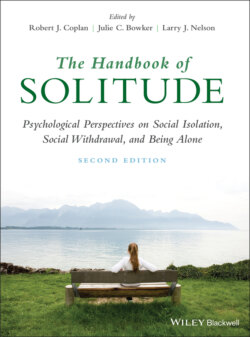Читать книгу The Handbook of Solitude - Группа авторов - Страница 49
The effects of peer deprivation in nonhuman primates.
ОглавлениеAlthough the majority of the social deprivation work with nonhuman primates focused on the effects of maternal deprivation via peer‐rearing studies, it is also important to understand whether peer deprivation alone without the experience of maternal deprivation would lead to any alterations in behavioral development. In the wild, social interactions with peers and other community members constitute an important part of primates’ lives. For example, by six months of age, rhesus monkeys spend only about 20% of their awake time with their mothers but spend the rest of the time with peers and other community members (Stevens et al., 2009).
Based on the proposition that growing up with only a mother without having opportunities to interact with other peers may be harmful for the developmental of social skills, Kempes and her colleagues (2008) compared two groups of rhesus monkeys. The first group was reared only by their mothers and were deprived of peer interactions for the first year of their life and subsequently placed in a peer group with monkeys that were raised in a naturalistic group. The second group was monkeys that were raised in a naturalistic setting with their mothers and peers. Peer‐deprived monkeys showed higher rates of submissive behavior, stereotypic behaviors and agonistic behaviors, and lower rates of grooming and sitting together with other monkeys (Kempes et al., 2008). These findings suggest that being raised only with a mother without having opportunities to interact with peers impacts the development of primates negatively.
